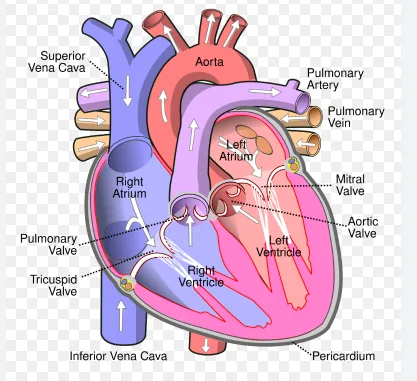Understanding and Managing the Heart Health

Heart disease can be a challenging condition, especially as we age. If you or a loved one are dealing with heart-related health issues, remember that you are not alone. Millions of people face similar challenges, and support is available. While there may not be a permanent cure for many forms of heart disease, managing the condition is crucial for improving your quality of life and preventing complications. Together, we can take steps to make daily life healthier and more enjoyable.
Understanding Heart Disease:
Heart disease refers to a range of conditions that affect the heart, including coronary artery disease, heart failure, and arrhythmias. These conditions can lead to symptoms like chest pain, shortness of breath, fatigue, and swelling in the legs. Over time, untreated heart disease can reduce the heart’s ability to pump blood effectively.
In simple terms, think of the heart as a pump that keeps your body supplied with oxygen and nutrients. When it’s not working properly due to blockages, weakened muscles, or irregular beats, your overall health can be affected. Understanding your specific condition is the first step toward managing it effectively.
What You Can Do to Manage Heart Disease
1. Take Medications as Prescribed
Your doctor’s recommendations for medications are vital. Whether it’s to lower blood pressure, reduce cholesterol, or manage symptoms, taking medicine exactly as prescribed helps control your condition and prevent complications.
2. Adopt a Heart-Healthy Lifestyle
- Diet: Focus on eating fresh fruits, vegetables, whole grains, lean proteins, and healthy fats. Limit salt, sugar, and processed foods. Aim for small, balanced meals to keep your energy steady throughout the day.
- Exercise: Regular physical activity, such as walking or light yoga, can strengthen your heart. Always consult your doctor before starting an exercise routine.
- Quit Smoking: If you smoke, stopping is one of the best things you can do for your heart health.
- Stay Hydrated and Rested: Drink water throughout the day and aim for 7-9 hours of sleep each night.
3. Monitor Your Health
- Regularly check your blood pressure, blood sugar (if diabetic), and cholesterol levels. Keeping these in check reduces strain on your heart.
- Track symptoms like shortness of breath or swelling and report any changes to your doctor promptly.
Medical Management
Your healthcare team plays a critical role in managing heart disease. Regular check-ups help track your progress and adjust treatments as needed. Common medical approaches include:
- Medications: Blood thinners, beta-blockers, and statins are often prescribed to prevent clots, manage heart rate, or lower cholesterol. Be aware of potential side effects and discuss them with your doctor.
- Procedures: In some cases, treatments like angioplasty or bypass surgery may be needed to restore proper blood flow to the heart.
- Lifestyle Counseling: Many providers offer resources to support healthier habits, such as nutrition classes or physical therapy.
Managing heart disease without professional help increases the risk of serious events like heart attacks or strokes. Always stay connected with your doctor for the best care.
Treatment Challenges
Treatment for heart disease can sometimes feel overwhelming. Medications might have side effects, and procedures may require recovery time. Additionally, maintaining new lifestyle habits can be difficult. These challenges are normal, and it’s okay to seek support from family, friends, or local groups. Remember, small, consistent steps can lead to meaningful improvements.
New Trends and Innovations
Exciting advancements in heart disease care are emerging:
- Wearable Technology: Devices like smartwatches can monitor your heart rate and alert you to irregularities.
- Minimally Invasive Procedures: Techniques like TAVR (transcatheter aortic valve replacement) reduce recovery time compared to traditional surgeries.
- Personalized Medicine: Genetic testing helps doctors tailor treatments to your unique needs.
- Research Breakthroughs: Studies are exploring new medications and therapies to repair heart damage more effectively.
Discover latest trends and innovation in more detail here: New Trends in Managing Heart Health. Ask your doctor about these innovations to see if they might benefit you.
Financial Guidance
Managing heart disease doesn’t have to break the bank. Here are some cost-effective options:
- Government Programs: Medicare and Medicaid can help cover medical costs for eligible seniors.
- Nonprofits: Organizations like the American Heart Association offer free resources and sometimes financial assistance.
- Generic Medications: Ask your doctor about lower-cost generic alternatives to brand-name drugs.
- Community Clinics: Many local clinics provide affordable care and screenings.
Where You Can Find More Information
Stay informed and proactive about managing heart disease. Here are some trusted resources:
- American Heart Association
- National Heart, Lung, and Blood Institute
- Centers for Disease Control and Prevention
- Mayo Clinic’s Heart Disease Guide
- MedlinePlus Heart Disease Information
Join the Conversation On Topic: Share your experiences and learn from others in the community.